The Best Trick for Going Back to Sleep After Waking Up at Night, Say Doctors
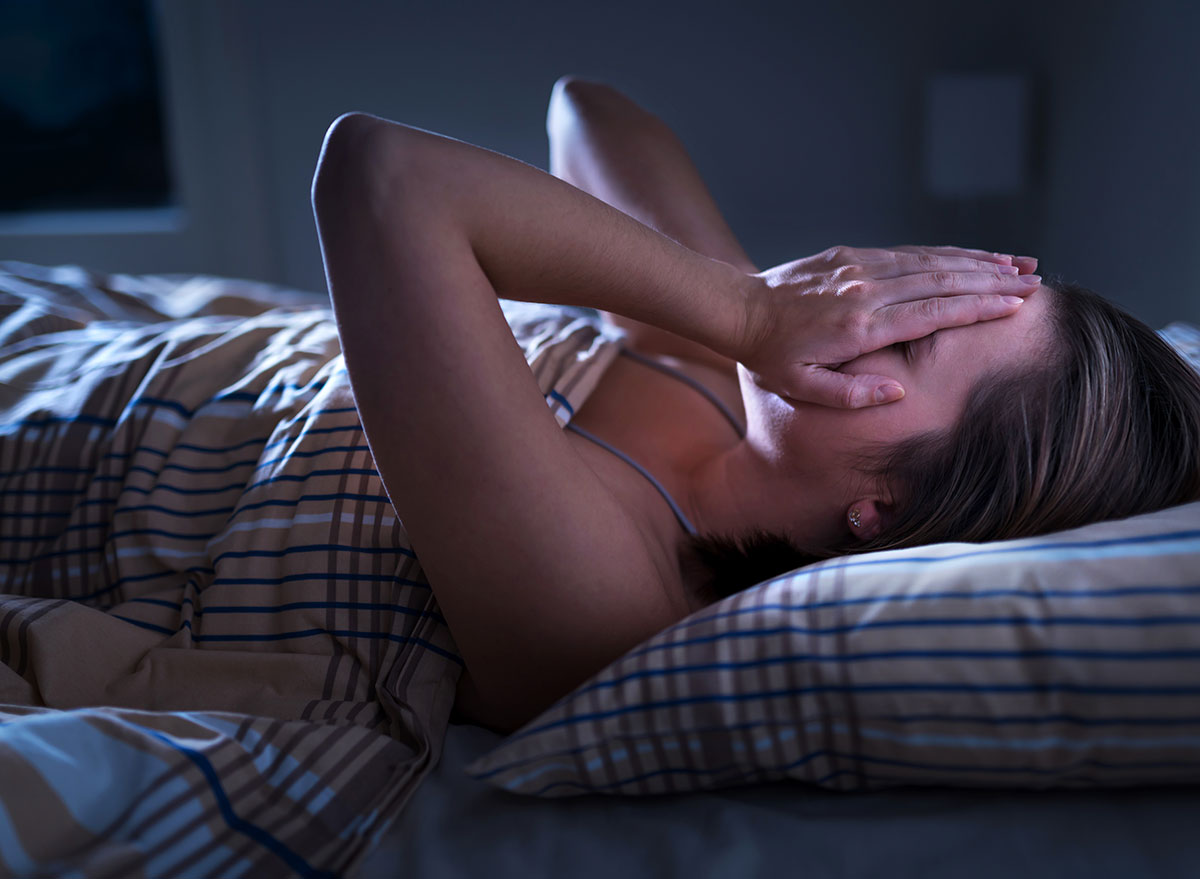
Few things are as dreadful as waking up in the middle of the night and finding yourself unable to fall back asleep. As the minutes and hours tick by, you can’t help but think about how exhausted you’re going to feel the next day, which then stresses you out and makes it even harder to get any more shuteye. If this sounds terribly familiar—and if you live in fear of the hours between one and five AM each night—you may want to try a refreshingly simple yet doctor-approved approach for getting back to sleep.
Paradoxical intention is a sleep strategy that has been a pillar of cognitive-behavioral treatments for insomnia and related sleep issues for decades. Put simply, the strategy works like this: Rather than trying to fall back asleep, attempt to stay awake as long as possible.
Yes, I know it sounds crazy, but hear me out.
Just like a rabbit chasing a carrot on a string, sleep is most elusive when we’re fixated on it. After all, we don’t actually control our sleep—it happens involuntarily. “If the focus of one’s life becomes so much about doing things to get to sleep, you can actually increase sleep anxiety and paradoxically stop yourself from getting sleep,” observes seasoned sleep psychologist Katherine Hall, a sleep therapist at Somnus Therapy. “Just like when you try and force a quiet mind, thoughts seem to get louder.”
Paradoxical intention, meanwhile, plays a subtle trick on your body, and works to allow that sleep to come back naturally. “It encourages you to lie in bed without doing anything to try to fall asleep,” says Hall. “The idea is to tackle the worry that comes with lying in bed awake and to normalize it in your mind. Once you’ve faced this fear, anxiety reduces and you’ll soon find that you are drifting off to sleep.”
So don’t try to sleep, and be cool with it. Just stay conscious and embrace the boredom. Consider writing in your journal or reading a boring book. If you used to fall asleep during boring lectures, imagine that you’re in that boring classroom. Science has proven it works.
One study published in the scientific journal Nature Communications, even discovered the neurons in the human brain’s “pleasure center” (the nucleus accumbens) that induce sleep in response to boredom. According to another study, published in the scientific journal Behavioural and Cognitive Psychotherapy, paradoxical intention helped a group of people struggling to fall asleep reduce their sleep performance anxiety, sleep effort, and subjective sleep onset latency (perception of how long it takes to fall asleep).
“Telling yourself before bed, ‘I’m going to lay here awake and I’m fine with that,’ will help relax an overly anxious brain and will paradoxically make it easier to fall asleep.” says Dr. Sujay Kansagra, the director of Duke University’s Pediatric Neurology Sleep Medicine Program and a sleep health expert for Mattress Firm.
Of course, there’s still the question of why you keep waking up in the middle of the night at all. If you’re continuing to find yourself waking up at 2am and unable to fall back asleep, read on, because we’ve listed just a few of the things that may be affecting your own sleep right here. And for more great advice for catching more Z’s, learn why This Easy Trick for “Falling Asleep in 5 Minutes” Is Going Viral.
You’re overthinking it.
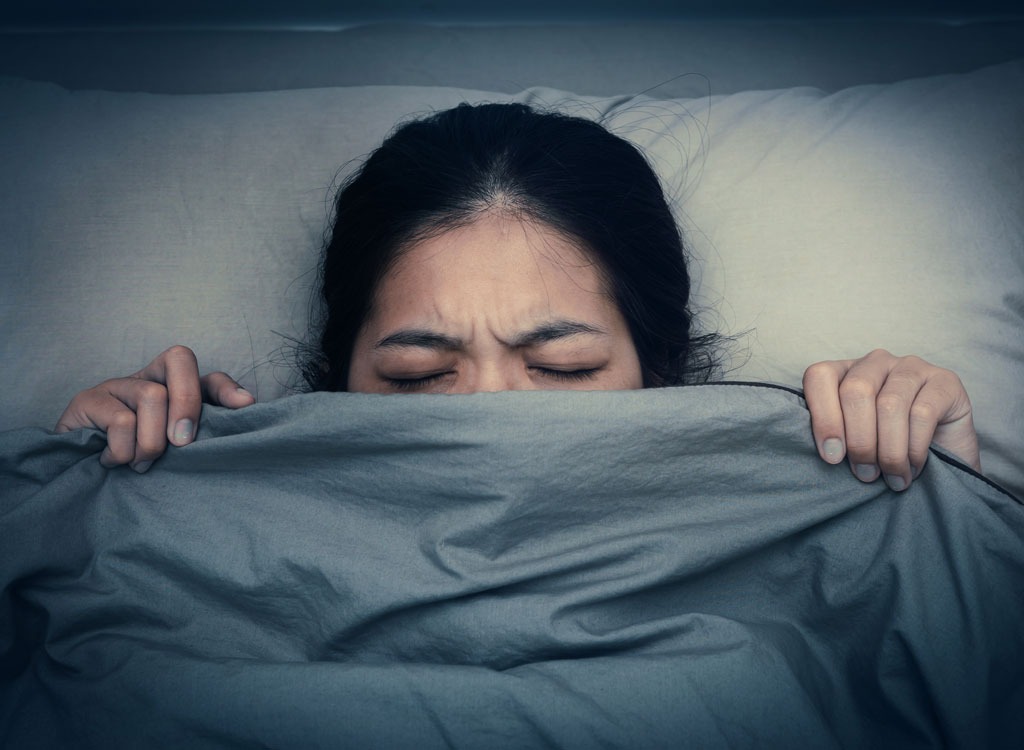
Insomnia can be a slippery slope. The moment one begins to think, “I’ve got a problem with my sleep,” chances are things are going to start getting worse, not better. The more pressure you place on yourself to get a good night’s sleep each evening, the worse your chances are of actually accomplishing that feat. Instead, enter each new night with no expectations. Sleep is a necessity of life, not a daily test to be passed.
You’re not disconnecting at the end of the day.
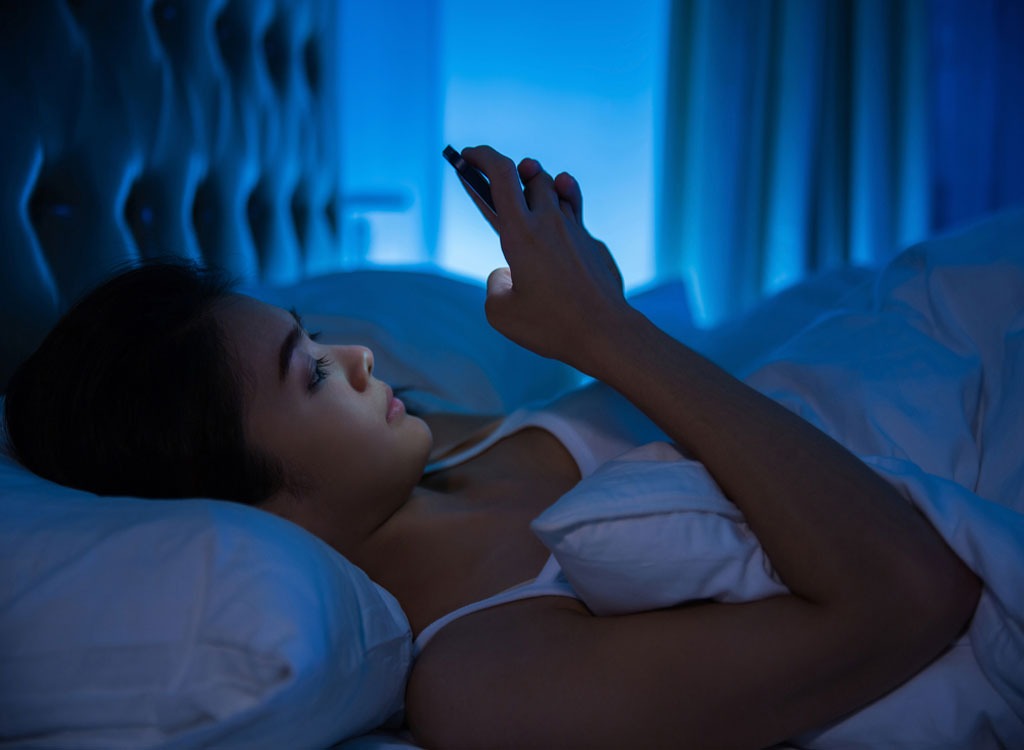
It’s always been beneficial to disconnect from the day’s worries and stressors before bedtime, but it’s especially important nowadays. We’re all “plugged in” to our phones constantly, and that’s a big reason why sleep issues are so widespread. If you’re checking work emails and depressing news headlines just before bed, you’re not giving yourself a fair chance at seven to eight hours of consecutive sleep. And for more healthy living advice, see why This Crazy-Popular Walking Workout Totally Works, Say Fitness Experts.
You’re taking too many naps.
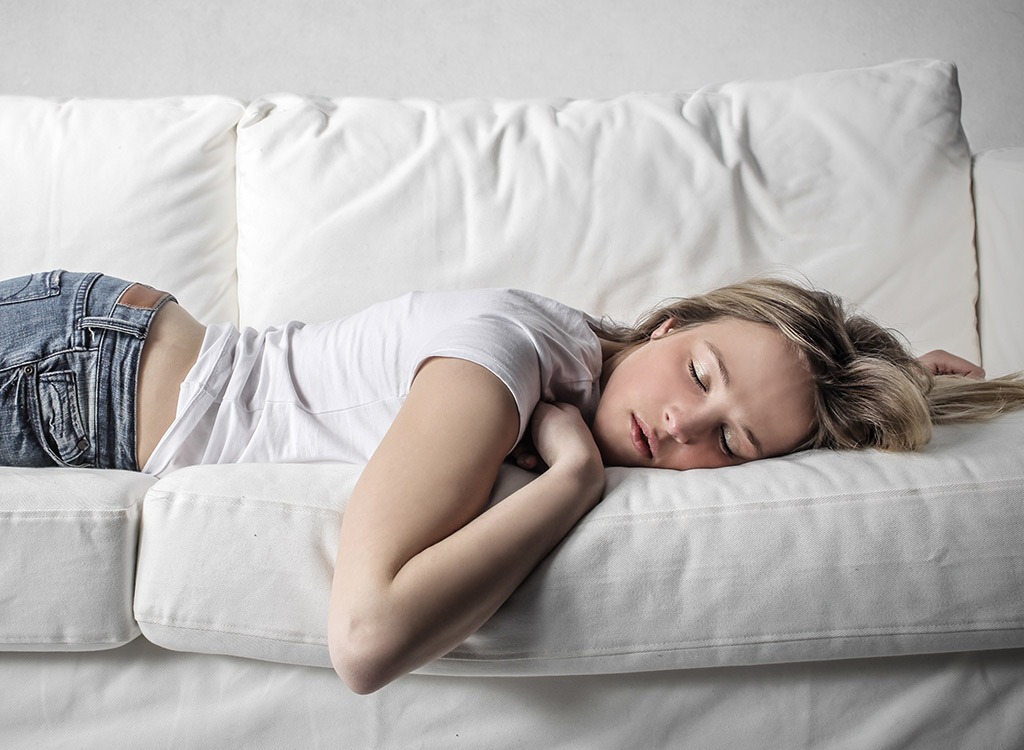
An afternoon nap or two may sound very appealing in the moment, but extra sleep during the day may end up robbing you of deep, transformative sleep in the evening. Too much sleep can be just as detrimental as too little. If you’re having issues sleeping through the night, do your best to keep your snoozing to when the sun is down.
You’re drinking too much, too late.
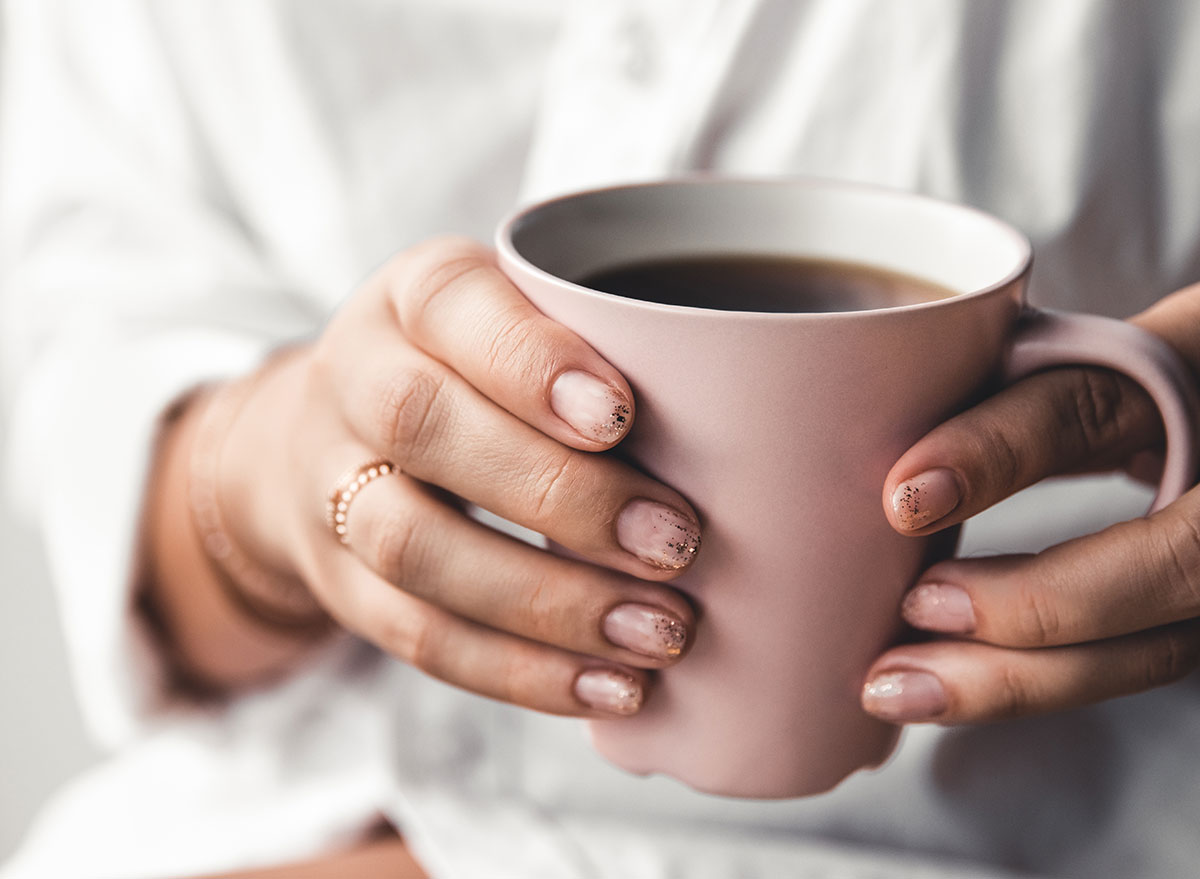
Whether your midnight drink of choice is tea, warm milk, or whiskey—drinking too much before bed is essentially guaranteeing a few extra trips to the bathroom in the night. If your early morning awakenings usually coincide with a sprint to the toilet, consider cutting off all fluid intake an hour or two before hitting the sack.
While too much of any drink will do the trick, alcohol is a particularly bad choice before bed. Tons of research, such as this study published in Alcoholism: Clinical & Experimental Research, have found that while alcohol may help you fall asleep initially, it will almost certainly harm the quality of your sleep. And for more ways to get restful slumber, make sure you Never Do This If You Want Good Sleep, Say Health Experts.








